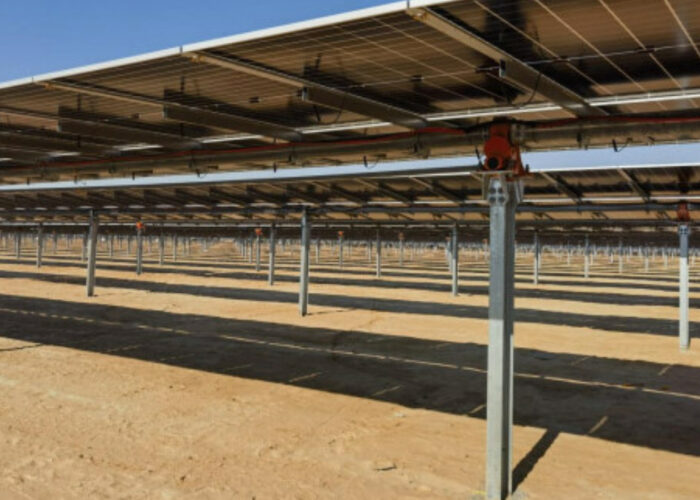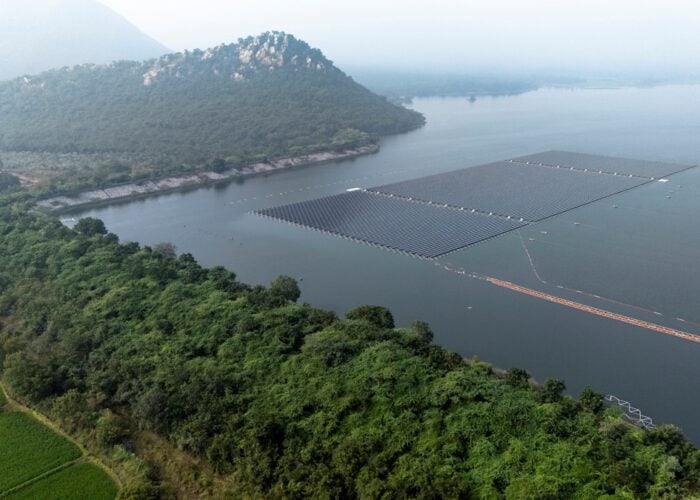Kyocera is targeting the German market for self-consumed solar electricity, with the Japanese company preparing to launch a home energy storage system in May.
The company’s distributor in Germany, Energetik Solartechnologie-Vertriebs, will sell Kyocera’s home energy storage battery system in combination with energy monitoring software and hardware by Solare Datensysteme. Solare Datensysteme currently markets its Solar Log monitoring system in various countries including the US, China, Japan and Britain and Ireland.
Try Premium for just $1
- Full premium access for the first month at only $1
- Converts to an annual rate after 30 days unless cancelled
- Cancel anytime during the trial period
Premium Benefits
- Expert industry analysis and interviews
- Digital access to PV Tech Power journal
- Exclusive event discounts
Or get the full Premium subscription right away
Or continue reading this article for free
Now that the FiT no longer offers attractive financial returns, Germany’s market for solar is driven at residential level mainly through self-consumption of PV-generated electricity. Dr Eicke Weber, head of Fraunhofer ISE, who is also director of the German energy storage association BVES, explained this situation to PV Tech at an energy storage conference in Duesseldorf earlier this week.
“In Germany in the past we had a very attractive feed-in tariff (FiT) and we didn’t have to worry about what to do with it, but now the FiT is so close to the cost to produce a kilowatt hour of solar electricity that it’s no longer an incentive,” Weber said.
“On the other hand the cost of a kWh of solar electricity is a fraction, about one third of the ‘wall plug’ cost of electricity. Therefore the issue of self-consumption, that’s a central issue. And of course if you now add a battery storage system to your system, you can easily boost up the self-consumption to 60%, maybe if you change your habits, even to 70% or 80%.”
Kyocera and Solare Datensysteme’s product will be available in 4.8kWh and 7.2kWh sizes, with Kyocera claiming that the storage systems multi-inverter incorporates the functions of both solar inverter and battery inverter. The battery box and inverter are housed separately.
Founded in Japan’s old capital city of Kyoto as a ceramic materials company in 1959 and diversifying into a number of related technologies, most recently inking a strategic partnership to add 3D printing to its portfolio, Kyocera is perhaps best known in solar as module manufacturer and supplier turned developer of PV plants. The company has installed a number of utility-scale projects in Japan and other territories including Thailand.
However activity in the Japanese ‘megasolar’ sector is already thought to be in the process of cooling down as a saturation point of sorts is reached and the energy market reform process that might reinvigorate the Japanese residential and commercial sectors is some way off. Meanwhile the feed-in tariff (FiT) will be cut twice this year, once at the end of this month when the financial year ends, with an additional cut to follow in summer. Kyocera's solar sales have been subjected to turbulence in the market in Japan as a result of some of these issues.
In a recent interview with PV Tech, Kyocera’s general manager for solar energy marketing Ichiro Ikeda said the company expects the emphasis in its home country of Japan to move toward self-consumption of electricity in future. The company has offered solar-plus-storage to the Japanese residential market since 2012.
“The company is enhancing sales of residential solar power generating systems in Japan,” Ikeda said.
“Furthermore, we expect that the industry will shift to a market in which self-consumption of power is possible with less dependence on the electricity grid. Based on this expectation, we are further focusing on combined sales of solar power generating systems and storage batteries.”
As PV penetration in the network rises, grid stability may be called into question in Japan and elsewhere. It is accepted that in Germany, where the grid is fairly stable, this point is some way off, meaning grid stability is less of a driver for storage adoption than say, island territories such as Hawaii. Yet as Germany continues the Energiewende, the national transition to renewables from coal and nuclear, this is likely to become a more pressing matter in the next couple of decades.






